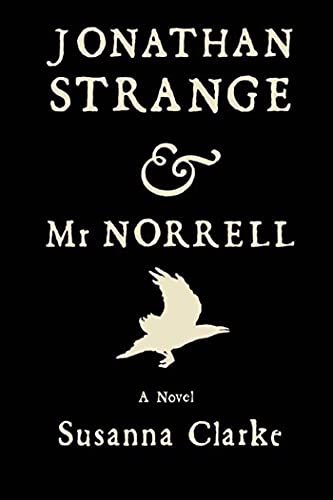If you loved me youd read this.
Discover heartfelt book recommendations in 'If You Loved Me You'd Read This'—a curated list of beloved reads to inspire your next literary adventure.

Book
Watchmen
by Alan Moore
Imagine a future where Nixon is still President, America won the Vietnam War, and the nuclear clock stands at five minutes to midnight.


Book
River Town
by Peter Hessler
Records the author's experiences as a Peace Corps English teacher in the small Chinese city of Fuling, during which time he witnessed such events as the death of Deng Xiaoping, the return of Hong Kong to the mainland, and the construction of the Three Gorges Dam.

Book
Jonathan Strange and Mr Norrell
by Susanna Clarke
English magicians were once the wonder of the known world, with fairy servants at their beck and call; they could command winds, mountains, and woods. But by the early 1800s they have long since lost the ability to perform magic. They can only write long, dull papers about it, while fairy servants are nothing but a fading memory. But at Hurtfew Abbey in Yorkshire, the rich, reclusive Mr Norrell has assembled a wonderful library of lost and forgotten books from England's magical past and regained some of the powers of England's magicians. He goes to London and raises a beautiful young woman from the dead. Soon he is lending his help to the government in the war against Napoleon Bonaparte, creating ghostly fleets of rain-ships to confuse and alarm the French. All goes well until a rival magician appears. Jonathan Strange is handsome, charming, and talkative-the very opposite of Mr Norrell. Strange thinks nothing of enduring the rigors of campaigning with Wellington's army and doing magic on battlefields. Astonished to find another practicing magician, Mr Norrell accepts Strange as a pupil. But it soon becomes clear that their ideas of what English magic ought to be are very different. For Mr Norrell, their power is something to be cautiously controlled, while Jonathan Strange will always be attracted to the wildest, most perilous forms of magic. He becomes fascinated by the ancient, shadowy figure of the Raven King, a child taken by fairies who became king of both England and Faerie, and the most legendary magician of all. Eventually Strange's heedless pursuit of long-forgotten magic threatens to destroy not only his partnership with Norrell, but everything that he holds dear. Sophisticated, witty, and ingeniously convincing, Susanna Clarke's magisterial novel weaves magic into a flawlessly detailed vision of historical England. She has created a world so thoroughly enchanting that eight hundred pages leave readers longing for more.

Book
Good Omens
by Neil Gaiman
There is a distinct hint of Armageddon in the air. According to The Nice and Accurate Prophecies of Agnes Nutter, Witch (recorded, thankfully, in 1655, before she blew up her entire village and all its inhabitants, who had gathered to watch her burn), the world will end on a Saturday. Next Saturday, in fact. So the armies of Good and Evil are amassing, the Four Bikers of the Apocalypse are revving up their mighty hogs and hitting the road, and the world's last two remaining witch-finders are getting ready to fight the good fight, armed with awkwardly antiquated instructions and stick pins. Atlantis is rising, frogs are falling, tempers are flaring. . . . Right. Everything appears to be going according to Divine Plan. Except that a somewhat fussy angel and a fast-living demon -- each of whom has lived among Earth's mortals for many millennia and has grown rather fond of the lifestyle -- are not particularly looking forward to the coming Rapture. If Crowley and Aziraphale are going to stop it from happening, they've got to find and kill the Antichrist (which is a shame, as he's a really nice kid). There's just one glitch: someone seems to have misplaced him. . . . First published in 1990, Neil Gaiman and Terry Pratchett's brilliantly dark and screamingly funny take on humankind's final judgment is back -- and just in time -- in a new hardcover edition (which includes an introduction by the authors, comments by each about the other, and answers to some still-burning questions about their wildly popular collaborative effort) that the devout and the damned alike will surely cherish until the end of all things.